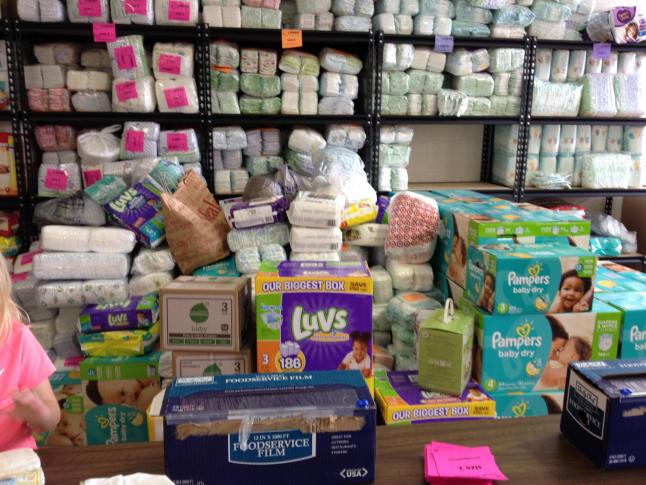Winston-Salem, N.C. — The recent fire in Winston-Salem did more than just damage the Winston Weaver Co. fertilizer plant. It wiped out much of the inventory in a nearby warehouse of the Diaper Bank of North Carolina.
“We are feet from the fertilizer plant,” said Michelle Old, CEO of the non-profit Diaper Bank of NC. She says smoke and chemicals from the fire damaged most of the supplies in their Winston-Salem facility. It’s one of three warehouses used by the Diaper Bank to serve up to 50 counties across the state.
After the fire, the Diaper Bank distribution operation was moved to their Durham location. “We are actually wrapping diapers just to get them out this week,” said Old. They are already sending 300,000 diapers a week to their clients.
Old says even before the fire, COVID-19 issues and rising product costs already strained their ability to meet clients’ needs. Groups they once depended upon for regular donations stopped meeting due to the pandemic adding to their shortage.
Now the Diaper Bank faces a series of increases:
400% increased demand for baby diapers
800% increased demand for feminine hygiene products
2000% increase for adult incontinence products
“78% of the families that receive our services are working one to three jobs and still cannot afford the most basic needs,” said Old.
She added another statistic, “100% of the time if someone is struggling for food, they cannot afford diapers.”
Families in need of the products provided by the Diaper Bank of NC do not receive assistance for diapers. WIC, the federal “special supplemental nutrition program for women, infants and children” does not cover those costs.
“And they cost up to $100 a month,” said Old.
Although the Durham warehouse appears well-stocked, “We don’t have all sizes,” said Old.
She added, “Actually preemies, which we cannot get from manufacturers — we use a lot of preemies. The smallest bottoms in the community are needing our support right now.”
What Old hopes for is a big spike in donations. She says the greatest need is now in the Triad area, the counties of the state most impacted by the fertilizer plant fire. “We have not missed one order, and we are determined to cover every single bottom,” said Old.


